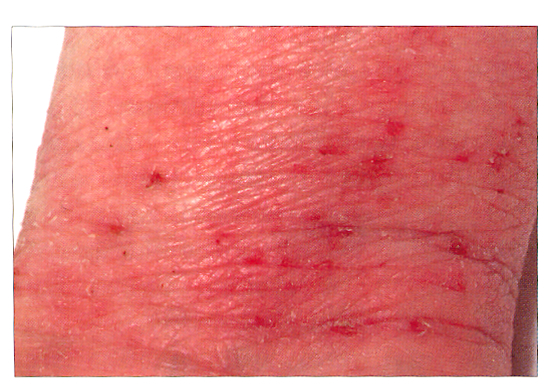Will habit reversal training help with my eczema?
Good question!
The answer is “ Yes - if you have chronic atopic eczema” and you use "The Combined Approach"...
Habit reversal training is a behaviour therapy that successfully treats unwanted habits like nail biting, hair pulling and thumb sucking. It was first written about by Azrin and Nunn in 1973: "Habit reversal: a method of eliminating nervous habits and tics".
Their book on habit control is illustrated above.
The usefulness of habit reversal for chronic atopic eczema was reported by Norén and Melin in 1989: "The effect of combined topical steroids and habit reversal treatment in patients with atopic dematitis".
At Chelsea and Westminster Hospital we created a treatment programme called "The Combined Approach" incorporating habit reversal, which we have found very successful treating chronic atopic eczema.
Scratching damages the skin. There are a number of different skin conditions linked to the habit of scratching and picking the skin. With atopic eczema, itch is the striking initial trigger to scratching - itch, and itching, is a feeling; scratch, and scratching is an action.
To begin with the scratching is a very conscious response to itch, but any behaviour that is repeated often enough becomes at least partly unconscious, automatic and a habit. This happens with atopic eczema: scratching eczema easily becomes a habit, and then gets switched on by other triggers too. And a great deal of this behaviour is unconscious, and automatic. Some of the habit reflects an instinct everyone has. We all scratch and rub our skin under certain circumstances, without thinking about it.
Any atopic eczema that persists longer than two weeks despite the correct treatment with creams is in danger of becoming chronic, if it has not already done so. The atopic eczema that responds to "The Combined Approach" is chronic, or longstanding. The eczema is continually present, with fluctuations up and down, but never clearing up altogether. Chronic eczema is kept going by habitual scratching: typically this is not so much due to itch, but linked to circumstances and the mental state. Then, when eczema flares up and is acute, it can be more itch than habit that causes scratching.
Chronic eczema is more easily provoked to acute flare-up eczema than healthy skin. It is much easier to successfully treat acute eczema when there is no chronic eczema underneath.
Chronic eczema can be recognized not only by how long it has been present despite adequate topical treatment, but also by it's appearance: the skin is typically thickened and rough, which is called lichenification. This can be felt, as much as seen:

To discover then how much scratching is habitual it is necessary to make it conscious: most habitual scratching is unconscious. The person is unaware of it happening. Even those around the person may have got so used to it: they do not notice it either. The habit is made conscious by counting when it happens: to do this it is best to use a hand tally counter. Usually after a week of measurement a much clearer idea is established about habitual scratching, and habit reversal training can then begin. Although habit reversal focuses on habitual scratching, it also treats itch scratching too. As the training has its effect and topical treatment is optimized, the skin heals. After two weeks the effect is clear, and after four-six weeks complete success is achieved. Try it!
Another questions? Contact me! Or, add your comment below....
